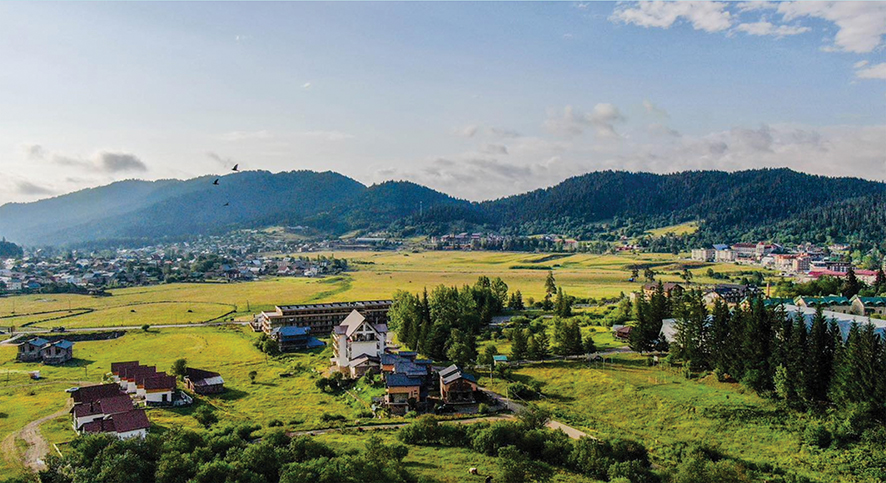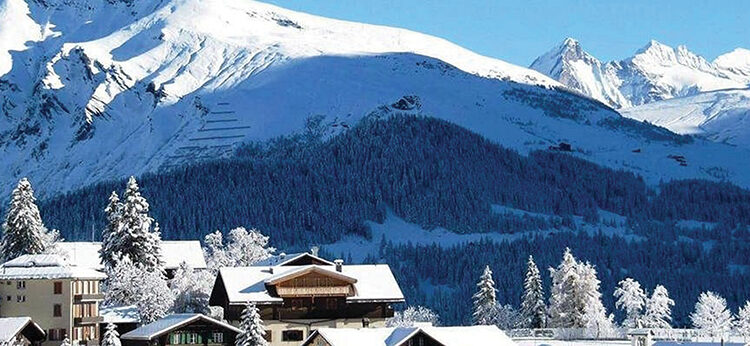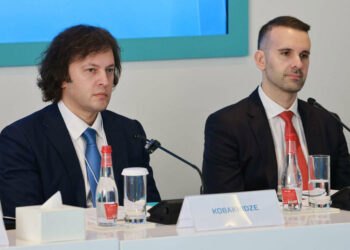When the Silk Road Group (SRG) announced its acquisition of Rooms Hotel Kokhta in Bakuriani, the move seemed at once ambitious and familiar. SRG is already synonymous with Georgia’s contemporary lifestyle economy: it owns the flagship Radisson and Telegraph hotels in Tbilisi, curates nightlife and cultural venues such as Republic and Noble Savage, and invests in leisure infrastructures like Iveria Beach and the Neptune sports complex. Now, by turning a historic ski destination into a year-round hub for sport and leisure, SRG is staging what sociologists might call an “infrastructural re-imagining” of place.
The promise, as voiced by founder George Ramishvili, is wrapped in nostalgia: “Memories of Kokhta are precious to me and to many skiers of my generation.” Nostalgia, as theorists from Svetlana Boym to Pierre Nora remind us, can function both as a sentimental refuge and as a tool for re-branding. By embedding personal memory into a corporate vision, SRG seeks to translate the collective aura of Soviet-era ski culture into a 21st-century luxury experience.
Bakuriani’s transformation belongs to a wider global story: mountain resorts that once thrived on winter sports alone are forced by climate change and shifting tourist economies to reinvent themselves as all-season playgrounds. The Alps, after the boom of postwar skiing, now increasingly market wellness spas, summer hiking, and cultural festivals. France’s Avoriaz or Austria’s Kitzbühel have long understood that to survive, a resort must diversify beyond the snow.

In Bakuriani, the same logic applies. The partnership with Patrick Lang, a French sports journalist and vice-president of Georgia’s Ski Federation, embodies this transnational transfer of Alpine expertise into the Caucasus. Lang’s declaration — that “this could be the beginning of a new era for Bakuriani” — frames the project within a narrative of national prestige. His own biography, entwined with the 2023 Freestyle and Snowboard World Championships in Georgia, links Bakuriani to the global sporting stage.
Resorts are never neutral spaces. They crystallize questions of class, accessibility, and national image. Thorstein Veblen’s theory of the “leisure class” is helpful here: the spa center branded with Anne Semonin, the children’s adventure camp, and the sleek Rooms design all serve as markers of aspirational consumption. Bakuriani’s reinvention is as much about symbolic capital as it is about ski lifts.
For Georgia, this symbolic capital is twofold. Internally, it presents a new model of domestic leisure for the rising middle class. Externally, it attempts to position Georgia within the international tourist map as a destination where Western luxury aesthetics meet local hospitality. This hybrid model echoes strategies in places like Croatia’s Adriatic coast or Montenegro’s mountain resorts, where post-socialist economies deploy luxury development as a fast track to global visibility.
Bakuriani’s landscape carries sedimented histories: Soviet winter sports culture, memories of childhood skiing trips, even the less glamorous image of muddy roads and half-forgotten infrastructure
Yet Bakuriani is not a blank canvas. Its landscape carries sedimented histories: Soviet winter sports culture, memories of childhood skiing trips, even the less glamorous image of muddy roads and half-forgotten infrastructure. The challenge for SRG lies in negotiating between these layers. Cultural geographers like Doreen Massey emphasize that places are not just coordinates but “constellations of social relations.” If Bakuriani is to become a year-round hub, it must reconcile its nostalgic past with its aspirational future, rather than overwrite one with the other.
One might ask: does Georgia seek to replicate the Alpine model, or to invent something distinct? The rhetoric of “clean air, hospitality, and the tastes of Georgia” suggests an emphasis on local specificity — an Alpine dream translated through Georgian sensibilities. If successful, this could create a model where leisure is not only about imported luxury, but also about embedding tourism in cultural identity.
The deeper question, however, concerns sustainability. As climate change alters snowfall patterns, and as global tourism becomes more volatile, the future of mountain resorts everywhere depends less on nostalgia and more on adaptability. If Bakuriani’s new chapter is to become more than a branding exercise, it will require infrastructure that is not merely cosmetic — roads that function, water that flows, and an ecological balance that can support year-round visitors.
Bakuriani today stands at a threshold. Its reinvention under SRG and Silk Hospitality will be watched closely, both as a business venture and as a cultural experiment. Will it become Georgia’s Kitzbühel, a destination of prestige and international allure, or something more nuanced — a resort that integrates Georgian memory, landscape, and hospitality into a sustainable year-round model?
The puddle between the hotel and the ski lift — the trivial yet telling complaint of regulars — is itself a metaphor. If SRG manages to “drain the puddle,” both literally and symbolically, it may well set a precedent for how Georgia builds its future of leisure: attentive to detail, rooted in place, yet open to the world.
By Ivan Nechaev














